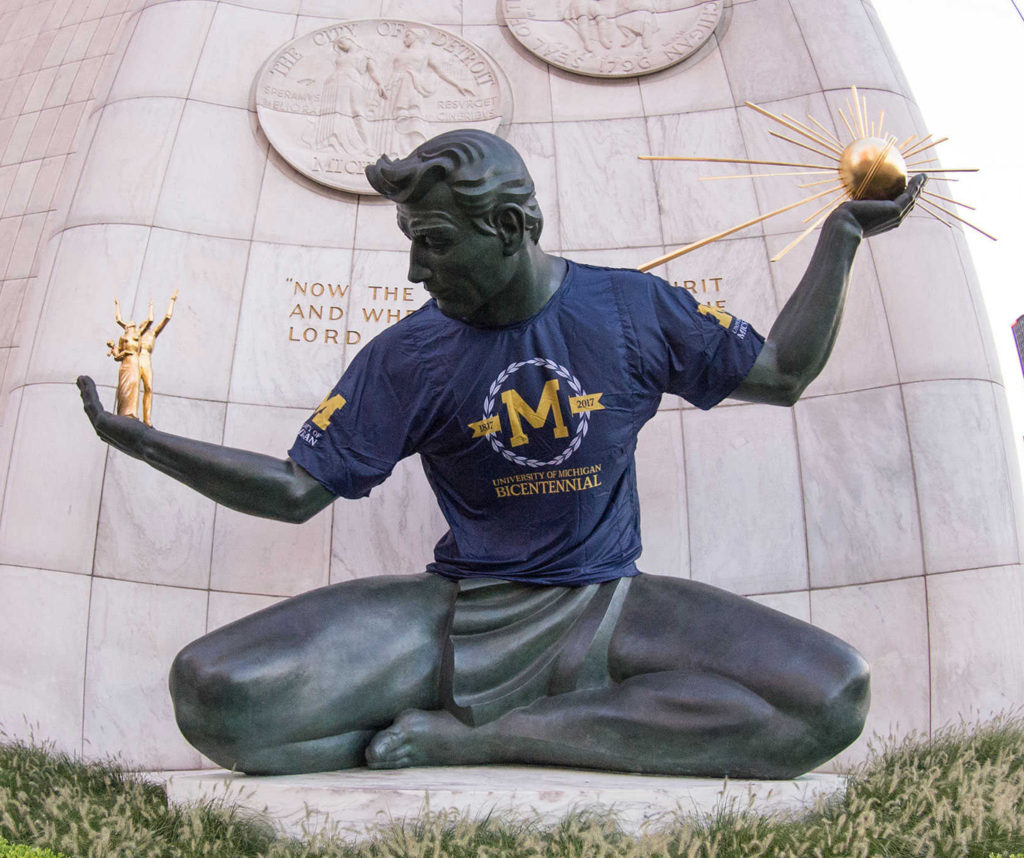Poverty Solutions, U-M’s presidential poverty research initiative started in 2016, funds the affordable housing policy fellowship. The digital inclusion policy fellowship and homelessness policy fellowship are supported by the Knight Foundation and Quicken Loans, respectively.
-
November 8, 2019
Alternatives For Girls launched in ’87 with no blueprint, continues to thrive
As Amy Good neared graduation from the University of Michigan’s School of Social Work, Professor Rosemary Saari gave her a challenge. “She said, ‘Do something hard, and build something that wasn’t there before,” Good says.
-
September 24, 2019
Visible from outer space, Detroit’s unofficial pathways could play important role in land redevelopment
“When traveling in Detroit, doing work on urban gardens, I was struck by all the footpaths,” said Joshua Newell, associate professor at U-M’s School for Environment and Sustainability and in the Program in the Environment. “There is so much vacant land, we are not going to be able to develop or simply enclose all of it … so why not think about reaffirming and formalizing how people are already using these spaces?”
-
September 24, 2019
New gift will help U-M provide opportunities for youth in Detroit
Half of the $5 million gift will establish the Weill Scholars Fund, which will provide tuition support and stipends for graduate students at the Ford School who come from socio-economically disadvantaged backgrounds and are committed to advancing diversity in public policy.
-
September 12, 2019
Summer optiMize projects build bridges to college, boost opportunities for entrepreneurs
Some University of Michigan students spent the summer honing their social engagement skills. Three dozen student-led start-ups that received funding from optiMize, a program that provides grants to students who want to build self-directed projects for social change, spanned out. One, Building Successful Bridges, worked with the incoming ninth grade class of Marygrove High School in Detroit.
-
September 4, 2019
U-M alum Dexter Mason teams sports with service to promote social justice
Dexter Mason says: “To be honored by the Detroit Center is one of the greatest honors of my life. The room I received the award in was actually the same room where I had orientation for U-M’s Summer Bridge program almost 10 years before. So it was just full circle. I couldn’t have imagined where I’d be 10 years later, and I give all the credit to U-M for that.”
-
August 20, 2019
Blight-busting demolitions reduced gun injuries, deaths in Detroit neighborhoods
A new University of Michigan and Harvard University study shows an 11% drop in homicides and serious injuries caused by firearms in the areas where more than a few demolitions took place. The study does not find that such incidents went up in nearby neighborhoods.
-
May 20, 2019
Q&A: Steve Tobocman helps make Detroit welcoming for immigrants
For the last 10 years, Steve Tobocman has been at the center of efforts to bolster Metro Detroit’s immigrant communities and their contribution to the region’s economy. Since 2009, the University of Michigan alum has led Global Detroit, a non-profit dedicated to making the area welcoming to immigrants, attracting and retaining talent, revitalizing neighborhoods, and attracting business development.
-
April 29, 2019
June Manning Thomas’ life’s work in Detroit started with a single, vacant lot
June Manning Thomas is Centennial Professor of Urban Planning and Regional Development at University of Michigan’s Taubman College of Architecture and Urban Planning today, but in the early 1990s her niece was living next to an overgrown lot in Detroit. That vacant plot got her thinking and asking questions: How had that land gone undeveloped for so long? Who had failed her niece and other black Detroiters?


